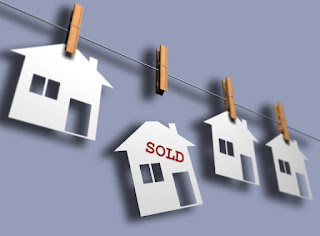HELOC vs Cash-Out Refinance: Pros and Cons
A Home Equity Line of Credit (HELOC) is a type of home value financing. You're still acquiring against the money already invested into your home, however rather than getting a singular amount of cash, you gain access to credit against your present equity. A HELOC resembles a Visa in that you have a certain measure of cash accessible to borrow and pay back. You can take what you want when, or if, you want it.
HELOCs often start with a lower financing cost than home equity advances, including cash-out refinancing loans, however, the rate is customizable, which implies it can increment or diminish as per assigned benchmarks.
This implies your regularly scheduled payment might increment or decrease also.
A cash-out refinance replaces your current home loan with another home advance. You should have equity developed in your home to utilize a cash-out refinance.
Deciding if a HELOC vs Cash-Out Refinance is appropriate for you is different for each person, so it's brilliant to contrast your choices and decide the ideal decision for yourself as well as your family.
The following are a couple of pros and cons for HELOC vs Cash-Out Refinance:
1. Cash-out refinance
Pros
• Financing costs will quite often be lower than different choices like HELOCs.
• You have the adaptability to utilize the money for anything you need, similar to home fixes, paying off premium credit cards, school educational costs and the sky's the limit from there.
• The interest from your underlying home loan might be tax-deductible, depending upon how it's organized and where you reside.
• There are various kinds of credits accessible with this cycle, with the term, fixed, and variable rate choices.
Cons
• Commonly, a cash-out refinance will expand the period for taking care of your home loan.
• Depending upon the current financing cost on your home loan, you could wind up with a higher interest credit and bigger regularly scheduled installments.
• It's conceivable that you might cause shutting costs related to refinancing, which generally range from 3% to 6% of the total refinanced sum.
2. Home Equity Line of Credit (HELOC)
Pros
• Shutting costs will generally be lower with a HELOC than with a home equity credit or home loan.
• You might have the option to get a tax cut if your HELOC is utilized to work on your home, however, you should initially look for the guidance of a tax professional.
• If you right now have a decent financing cost, a HELOC will permit you to keep up with that rate while acquiring money to utilize any way you see fit.
• You can acquire up to 85% of the worth of your home, versus 80% with a cash-out refinance.
Cons
• Financing costs will generally be higher with a HELOC than with refinancing your home.
• In contrast to a 15-or 30-year contract, a HELOC commonly accompanies a lot more limited term, somewhere in the range of 5-10 years.
• You will make two installments on your home versus one – your current home loan and your installment on the HELOC.
• With a variable loan cost versus a fixed-rate contract, your regularly scheduled installments might change.
Settling on the Right Choice: HELOC vs Cash-Out Refinance
You're probably beginning to find out about which sort of financing accommodates your circumstance.
Both forms of refinancing can seem ok if you can get a decent financing cost on the new credit and have a sound use for the cash.
Before choosing whether to apply for a HELOC vs Cash-Out Refinance, consider how much cash you truly need and how you intend to utilize it.
Factor in financing costs, expenses, regularly scheduled installments, and duty benefits as you weigh your choices.
Utilizing the equity in your home admirably before selling can offer incredible financial advantages.
Simply be judicious and careful in your independent direction, and sooner rather than later, get advice and guidance from an expert in the mortgage industry.




Comments
Post a Comment